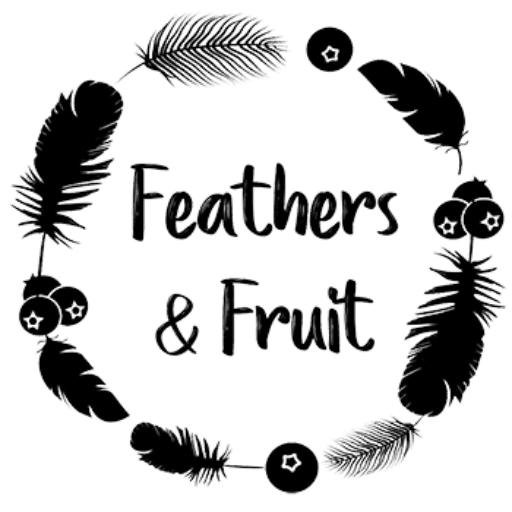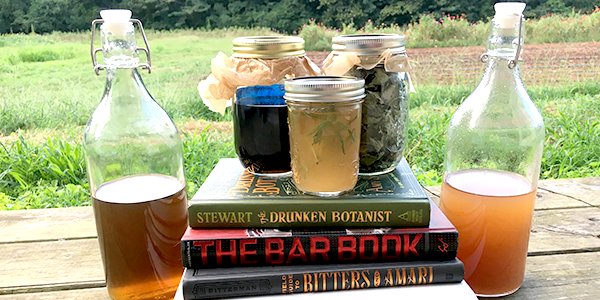Taking the time to create and enjoy the perfect beverage
Hot or cold, the perfect drink should take some time; intricate parts creating a mellifluous mixture. More than just a perfectly poured Guinness, an aperitif or digestif should encompass local, fresh ingredients as much as the meal.
The slow food movement rocked the kitchen table and small-batched beer was close behind but how quickly are craft concoctions trending?
Using canned concentrated juices and slamming sugary shots are quickly moving out of the spotlight being replaced with handcrafted, free flowing substances like kombucha, tinctures and shrubs.
Two local businesses began based on the idea that relying more on Mother Nature and less on artificial flavors is the best thing for the beverage world setting the Chattanooga standard for caliber stirrable sustenance.
Widespread Kombucha
In circulation since 2014 as the premier Chattanooga kombucha tea, Blue Indian Kombucha quickly gained a reputation by providing a quality local product using local ingredients as well as a “unique element to Chattanooga’s growing collection of craft brews.”
Began because Karen Brokaw was a stay-at-home mom who wanted to save money and make good food for her two daughters, Blue Indian Kombucha started like many small businesses, in her kitchen.
“Everything I learned about herbs, I learned from my workshare in the Crabtree Farms greenhouse,” Karen excitedly explains how the education she received during her volunteering was imperative to her success. “Crabtree was the incubator of Blue Indian Kombucha and, because of them, I started fermenting everything.”
According to Blue Indian’s website, “Kombucha is sweetened tea fermented by a kombucha culture commonly known as a symbiotic colony of bacteria and yeast, or scoby for short.” Karen received her scoby from her midwife’s assistant.
“There is this awesome connection to our past and ancestry,” Karen adds regarding the reason why she does what she does. “It is said to aid digestion, boost immunity and enhance overall health.”
“Kombucha was an unknown product in this town four years ago,” Karen said as she talks about the obstacles she had to overcome in the initial stages, “We were brewing five gallons in Chattanooga Brewing’s commercial kitchen, then wholesale took off and we had to rebuild the brewery overnight.”
Currently in her own facility in Brainerd, she brews about 200 gallons a month and is featured in almost a dozen retail outlets around the area including the Tap House, the Frothy Monkey, and Pie Slingers Pizzeria and Phantom Horse Brewing Company in Rock Springs, GA.
All three offer a fermented feature by either suggesting it as a “flavor shot” to create a Beer-bucha or mixed within a signature cocktail. Heaven & Ale were the first to offer Blue Indian a tapline and created Kombucha Cocktails made with Blue Indian’s Raspberry Mojito, including the “The Guru” made with Calfkiller Saision. They, like all of the wholesalers, only carry Blue Indian on tap and can fill growlers as well.
As Blue Indian is adamant about being a zero waste company, they will never sell in pre-packaged bottles, making wholesale opportunities slightly limiting, but the availability is more than accommodating with vendors like Whole Foods, Pruett’s Signal Mountain Market and Nutrition World.
“Half a bottle ‘neath the bed,” Karen references a Widespread Panic song as she explains the inspiration of the company name, “keep our spirits fed”. The beautifully owl-logoed growlers are well recognized as the brightly-colored contents. She grows the mint for the Raspberry Mojito and sources other ingredients from local farms. Her favorite is Strawberry Lime but the Blueberry Ginger is the number one seller.
“I’m excited that people are brewing because it’s fun and that means more conversations about probiotics,” Karen expresses her feelings about the increase of homebrewers and how it has not affected business. “It is such a high maintenance beverage, they’re either all in or it turns into vinegar on top of the fridge.”
I asked if she considered teaching the process but she said “it’s not her thing.” She did advise to follow your nose and eyes. To quench your thirst and curiosity, you can try a taste and talk with Karen at the weekly Main Street Farmer’s Market.
Locally Bitter & Sweet
One of the sweetest people in the state, Kaleena Goldsworthy-Warnock, is making big changes in the bitters world.
“There are tried and true methods from herbalists of the ’60s and ’70s,” Kaleena explains how no one is making bitters in Tennessee nevertheless in many places. “So there is no book to follow and resources are from many moons ago.”
Kaleena created The Bitter Bottle in January 2017 and has been working ever since to get it through the convoluted governmental regulations and into production. Emailing the FDA and TTB regularly, she partnered with local legislators to change laws regarding the classification of bitters.
When she began this endeavor, one who makes bitters technically needed a distiller’s license, similar to a small batch brewery, because there is alcohol present however this elixir is so concentrated that a person would be more likely to get an upset stomach before getting drunk.
“I wanted to make an impact in the historic cocktail culture and there is a gap in craft cocktails,” Kaleena describes how The Bitter Bottle came about. “In May 2017, it became legal to make small batch bitters without a distiller’s license and I will be the first legal small batch bitters in the state of Tennessee.”
Kaleena moved here in 2013 with a secured job bartending at The Flying Squirrel before it was open. Only problem was, she never tended bar before.
“As I was previously a preschool teacher, I thought that was a perfect prerequisite to be a bartender,” she jokes as she tells of how she began her cocktail career. “I actually asked a customer what kind of soda they wanted in their vodka and soda so I bought ‘Bartending For Dummies’ and began to research a lot.”
She then became really interested in the history of alcohol and cocktails which lead to tinctures, bitters, tonics and remedies. Tinctures is a mixture of alcohol and herbs that is extremely concentrated. Bitters is a subcategory of tinctures but the bitter flavor is isolated to heighten the pallet. Tonic does not necessarily have alcohol in it, but like a remedy, is ingested to create a feeling of well-being.
“I studied herbalism and, as The Flying Squirrel buys all their herbs from Crabtree Farms, I opted to volunteer to learn more.”
Like Karen, Kaleena began to workshare in the Crabtree greenhouse and was inspired by Greenhouse Manager Mike Barron to use edible plants more in cocktails as well as cooking.
Hosting Farm To Cocktails at Crabtree last weekend, Kaleena demonstrated how natural preservation, using vinegar, sugar or alcohol, is quite simple yet leaves a maestro mixologist impression. The class featured a blueberry infused gin, a mint syrup, a lavender and blackberry leaf cordial and a pear, ginger, lemongrass shrub.
“I wanted to classify The Bitter Bottle as a non-beverage so that it can be available in the grocery store for cooking,” Kaleena, who declared The Bitter Bottle as a modern American apothecary, describes the goal of the business as to heal and help. “Your bartender used to be your pharmacist so these products serve people both with the natural, medicinal qualities and as flavoring agents for food and drink.”
The next step is the manufacturing so The Bitter Bottle is not available on shelves just yet. In the meantime, she is for hire as a beverage consultant to help with menu development, cocktail education and cost management. Contact her at Kaleena@TheBitterBottle.com to remedy your inquiries.
No, I Don’t Want No Shrub
It’s hard for me to be a farmer and try to live a healthier life as I am a soda addict. I know all the downfalls. I know it can clean blood off a highway. I get it and have been trying to change. So when I was educated this summer about the vinegar-based Shrub drink, I was skeptic thinking I don’t want to taste something that smells like Easter egg dye. But then I drank one. And then I made one.
Traditionally, it is made with berries but I had the pleasure of making on with only Rosemary at Kaleena’s Farm To Cocktails class. Shrub, also known as a drinking vinegar, is a bit pungent so don’t nose dive when you go to sip it.
With Rosemary and vinegar being very overpowering on their own, I thought this concoction was going to blow me over but they complimented and calmed each other down so much that it was fabulously refreshing.
Like kombucha and bitters, this slow drink derived from the Arabic word “sharab” meaning to drink, does not need to be refrigerated because the vinegar and sugar preserve it. It was more popular in colonial days but once the refrigerator and other modern conveniences hit households, the shrub merely became a small bush in the yard.
There are recipes you can find but liberty can be taken with it depending on how sweet you like it and the longer it sits, the more the tang changes. Let it steep overnight or over a week, while taking a sip out of it each day to experiment with the influx of flavor.
Cheers!

